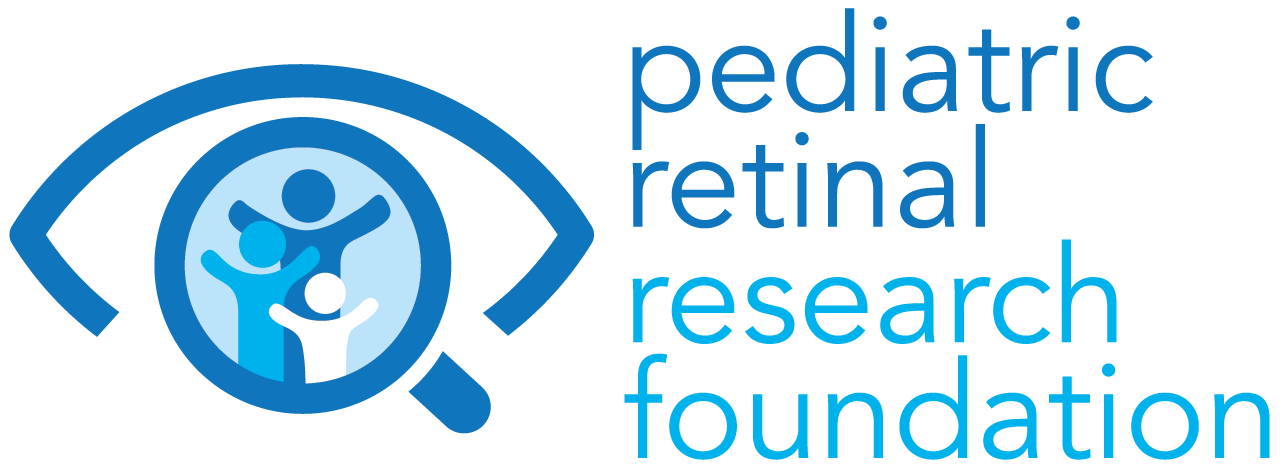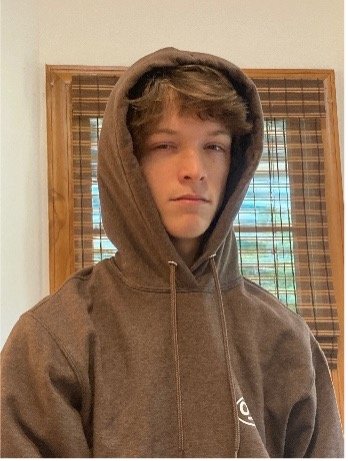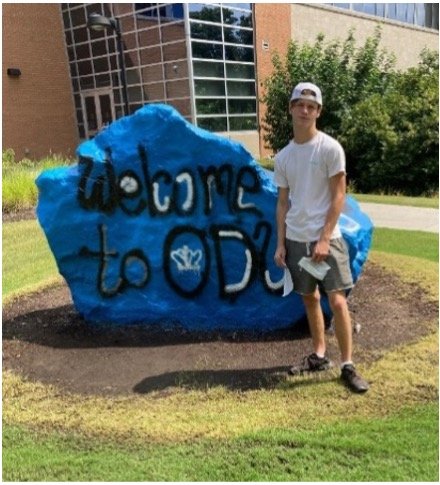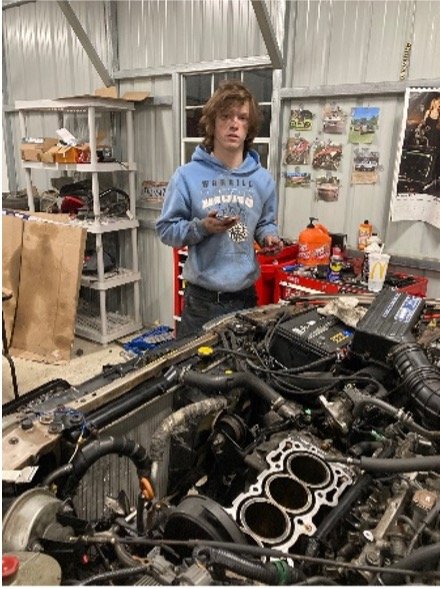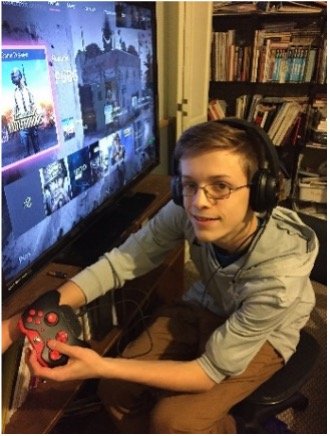Navigating High School and College With Your Young Adult Low Vision Child
The “experts” never say anything about how your role as a parent changes when your child becomes a young adult. Out of all the books and articles I have read about parenting there was nothing to prepare me for my young adult child. Having 4 boys, the young adult years has been one wild ride! Now, let’s add in the complexity, stress, worry, etc. for a child with low vision, where there is no treatment or cure, and then let’s fast forward it to their young adult years…
Honestly, my intent in this article is not to provide a “success plan,” or a checklist, or even some quantifiable data; but rather, I’d like to share my story with hard lessons learned as well as many unplanned or inadvertent “wins” that we’ve been through - not only in high school, but during the college years.
Collin was diagnosed with X-Linked Retinoschisis when he was just turning 4 years old and it rocked our family to the core. While Dr. Trese compassionately told us that he was working on a synthetic-schisin in the Pediatric Retinal Research Lab (PRRL) that could be a potential treatment, [results were] years into the future and no clinical trials had even started. With my wife being a special education teacher, we decided to home school Collin because we felt we could educate him better and be more responsive (with his eyesight changing and degrading) than the public schools could. IEPs (Individualized Education Programs) were taking months to complete and accommodations were always a negotiation. By the time he got to high school, he was adamant about going back to public school as we were “ripping him off” on the school experience - a chance to make friends and be “normal,” as he put it. We gave in because we could see he was extremely unhappy, knowing that we could always pull him home, if need be.
Some of the social challenges for Collin were in initially making friends at the beginning of high school. While we wanted him to wear glasses both for his astigmatism as well as protection of his eyes (we can’t tell you how many times his eyes were saved because he was wearing glasses when he was younger), he would take them off and stick them in his backpack “because glasses weren’t cool and they are calling me a dork.” We never won that battle and even today he won’t wear glasses in public. One of the biggest issues that we didn’t realize was Collin struggled to see facial expressions at normal social distances. Understanding non-verbal cues, gestures, or facial expressions are critical in a social environment, especially in high school where the perception of what your peers think about you matters. This presented challenges in making friends and maintaining social interaction and really was frustrating for Collin.
Another set back was with Assistive Technology (AT). As prepared as we were for the IEPs, if the low vision specialist is inexperienced, the appropriate services were often missed. The IT policy took a while (about 2 years) to change to allow iPads in the classrooms. We even offered to buy the iPad if they would just allow the system to be on the network. During his junior year, the AT Tech came to an IEP meeting and offered a school-purchased iPad. We were excited, but Collin said, “Why would I use that? So I could look even more blind.” Later in high school, Collin admitted that he didn’t care that he was different, but he didn’t want special treatment and he doesn’t like admitting when he can’t do something. He refused to use it and I still can’t wrap my head around the social aspects over-riding the technical advantage.
Playing contact sports: Collin was a very active boy and the concerns of trauma to his eyes or even his head resulting in degraded vision, detached retina, or blindness wasn’t something we, as parents, could accept. Dr. Trese had a bunch of examples where his patients lost vision because of playing a contact sport and even a pet dog wagging his tail had hit a patient’s eye and caused a detached retina. The worst was on our annual extended family trips to Walt Disney World. Based on the vibrations and G force of some of the rollercoaster rides, Collin wasn’t allowed to ride the more violent roller coasters. With huge regret, and seeing the hurt on his face, I had to come up with a plan as he so badly wanted to ride the roller coasters with his cousins. To make it hurt less, I or one of his uncles, would take him to a gift shop while the cousins were on the rollercoaster and he could pick a gift. I knew he wasn’t happy, but he didn’t complain.
Driving a car: Not knowing how much his vision would decline, we searched out a local Optometrist who had experience assisting with eye exams and knew the Virginia Department of Transportation’s rules. Collin was fortunate to have good enough vision to receive a day-only license. This was an important milestone for Collin as a young 16 year old. We were prepared for the worst, but were thankful for a small “win” with driving. Additionally, while not being able to drive at night really upset him (especially senior year and into his college days), Collin had developed a strong core set of friends. They loyally drove him around at night and never excluded him even when it was inconvenient to drive him home. While I was ready to pick him up at any hour, we are very grateful for his friends and how they don’t treat Collin differently. This was another “win” and allowed Collin to have some autonomy. It was being able to drive that opened up his interest to working on cars. He immersed himself into understanding car and truck motors and systems and began working on modifying his hand-me down truck. Seeing his interest in vehicle maintenance, we saw this as a great opportunity to foster a passion with a skillset. As he acquired some more tools, we saw his interest in automotive maintenance go from changing oil to more complex tasks like replacing brakes and starters to a culmination of installing turbos and rebuilding engines.
While Collin was fixing his friend’s cars and trucks, we convinced him to apply to college and with a 3.7 [grade point] average he was able to get accepted to Old Dominion University. He decided he wanted to be a business major. I researched the office of disability and we found out it was very different than high school. While establishing accommodations and sending a copy of his high school IEP, it was up to Collin to meet each professor and explain his accommodations. This negotiation per class was the last thing Collin wanted to do. He never wanted to receive “special treatment” and this discussion of accommodations for his eyesight was uncomfortable. For some classes, it didn’t matter where he sat, the writing on the board was just too small. These struggles in the classroom left Collin frustrated and ready to be done with college. After 2 semesters, Collin was determined to try something else.
I wasn’t happy that Collin wanted to quit college, but he had a plan and now he was going to be an electric technician. Heck, he’d been wiring up stereos, woofers, and bass speakers in his friend’s cars for years. Again, Collin was determined and he worked all of fall 2022 learning the trade. One day he came in and said he was thinking about going back to college. I asked why, and he told me a few reasons, and then he said, “Dad, I really can’t see some of the differences in the colors of the wires.” So, I said, “OK, let’s try college again.” While he was frustrated and felt like he was failing, I took this as a small “win” because I saw him not giving up and looking for the next path forward. His new plan was to take classes asynchronously where he could zoom in on the computer screen to be able to clearly see, as well as repeat sections that he missed because of the size font or diagrams on the slide show were too small. This has worked better than in-classroom courses.
I could continue with many examples of how navigating through high school and college has been challenging, but I’ve seen Collin grow with advocating for himself, albeit ever slowly. Nowadays, he’ll agree with me that self-advocating is better to start in high school so by the time you’re in college it comes naturally to interact with professors. I’ve enjoyed watching him develop his own autonomy and plan for his life and, reluctantly, we had to make sure we kept our white-knuckled concerns under the table so as not to overshadow his “never quit” spirit - this was difficult for us as A+ parent-personalities. Recently, we just started talking about summer internships and I am hoping this will be the next leg of our journey as he advocates for pursuing internships which may yield a follow-on job after college. I’m sure there will be so much more of the story, so stay tuned… 😊
~ Chuck Walls, Parent, PRRF Board Member and Family Advisory Committee Member
